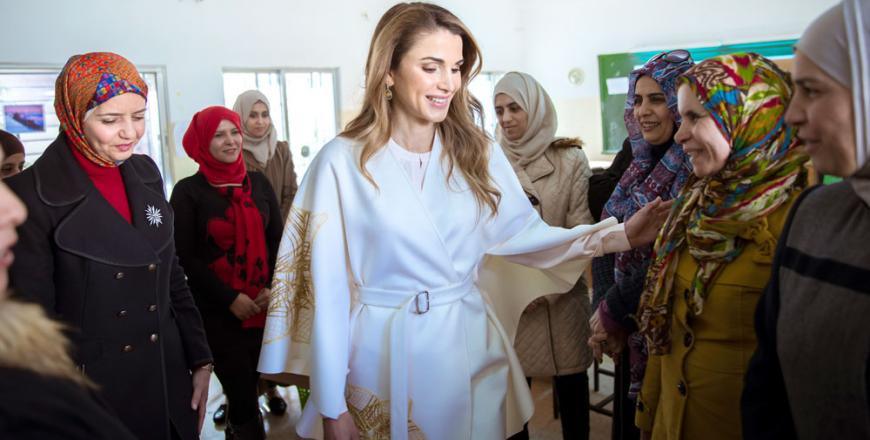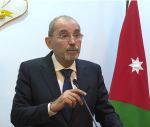You are here
Stakeholders urge consistent ‘national line of action’ to address declining maths, science performance
By Jassar Al Tahat - Dec 06,2016 - Last updated at Dec 06,2016
AMMAN — Ahmad, an eighth grade student, was roaming near the public school from where he apparently sneaked out.
"I hate the maths class, I don’t understand anything, nor do my friends; they don’t understand what the teacher is talking about."
Another boy, a sixth grader called Ahmad who attends a private school, was fairer to his maths teacher, but held the same attitude towards the subject. “The maths class is one of the most boring classes,” he said.
“The teacher is good, but we ca not wait till the class is over.”
The deteriorating performance of maths, and science, in Jordan’s schools has become a national concern, despite decades of education reform.
The two Ahmads may reflect an aspect of the problem when their teachers cannot make the class interesting enough.
Her Majesty Queen Rania has blown the whistle when she has on more than one occasion cited the drop of Jordan’s ranking on the international TIMSS, which stands for Trends in International Maths and Science Study.
The latest TIMSS results showed that Jordan had dropped 20 points by ranking 386 in maths, age category 9-10, and dropped 23 points in science achievement with 426 points.
In her speech at the launch of the National Strategy for Human Resources Development conference, the Queen cited shocking facts about the outcome of Jordan’s education process.
“We get to the 8th grade, and we see that instead of improving, Jordan’s ranking has deteriorated in the last two cycles in the TIMSS International Mathematics and Science Assessment.
“Then, in the 10th grade, we find Jordan ranking among the bottom 10 countries in the Programme for International Student Assessment on a list of 56 states.”
Hosni Ayesh, an education specialist, former dean of a teacher training college and an expert in education economy, traced the problem to the day when institutes training graduates to become teachers were closed in favour of education faculties at universities, which, he said, have failed in carrying out the mission.
“They [the universities] do not provide sufficient practical training and lack enthusiasm,” he said.
Ayesh added: “Actually, there are people teaching our children who are not teachers; most of them start their teaching careers without specialised training or even interest in the profession.”
Ayesh underlined what he termed “immunity to change” as a major aspect of the education problem.
“Today’s pupils are not the same as yesterday’s. Today, they are captured in the strong current of technology, which we cannot control, and have failed to fully integrate in the educational process.”
Having served as a maths and physics teacher for 27 years, Osama Abbas, who also does private tutoring, said that concerned parents, who can afford it, resort to private lessons to fill the gaps between what basic maths and science skills their children have and what they are required to master as they reach senior high school.
Much of the diagnosis blames the problem on teachers’ deteriorating abilities, or even negative attitude, but for Hassan Otoum, a member of the Jordan Teachers Association Council, a joint committee with the Ministry of Education (MoE) and a teacher, the country lacks a consistent “national line of action”.
“We, for example, need a national committee to develop the curricula and ensure that we incorporate the latest technological advances in the syllabi. Technology is, in fact, engulfing the young generation, yet the educational process has failed to benefit from it,” Otoum said.
An inclusive education strategy, focusing on the early stages of education and better preparation of teachers is a key aspect of the solution, according to Otoum.
Zooming in to the particular problem of math performance, Hassan Jabali, a maths supervisor at the MoE said the problem with mathematics as a school subject cannot be traced to one factor. Incorporating modern technology is the key, he acknowledged, but what is happening is that reliance on technology to find answers to problems has “eliminated students critical thinking and mental abilities”.
Till the root causes of the problem are identified and addressed, students like Ahmad will cite his inability to decipher maths class instructions as the reason to sneak out of school.
Related Articles
AMMAN — Her Majesty Queen Rania on Thursday wrote on her Facebook page that the drop in maths and sciences in the global ranking of Jordania
AMMAN — Her Majesty Queen Rania on Tuesday joined a group of education professionals at a workshop on the deteriorating performance of Jorda
AMMAN — Jordan has shown a marked improvement in the average performance of fourth- and eighth-grade students, according to results of the 2

















